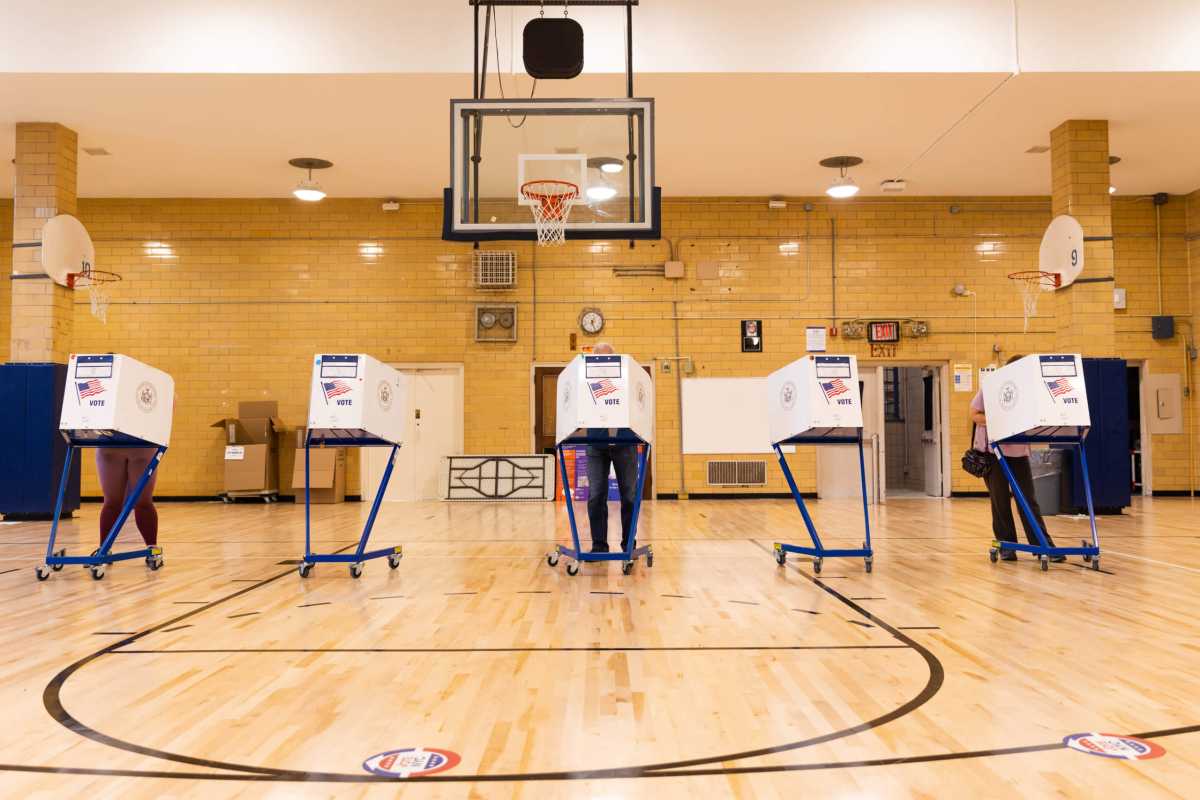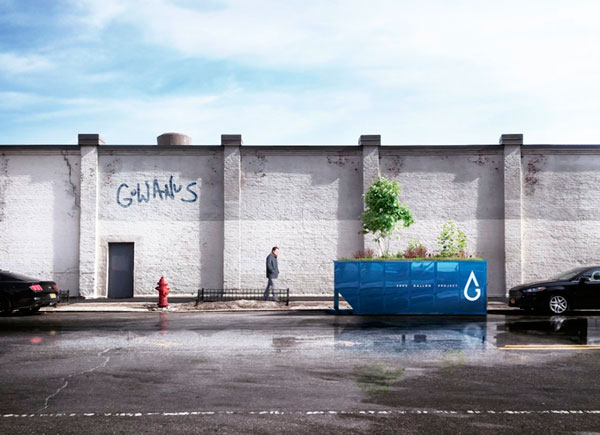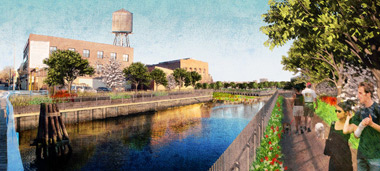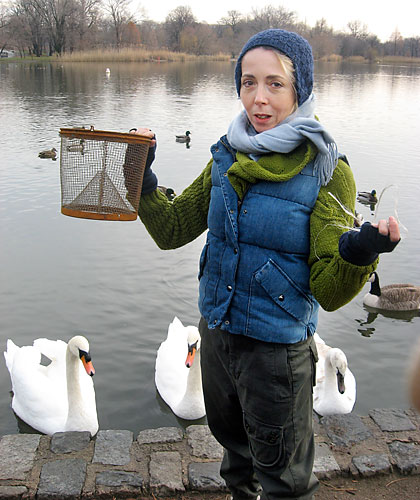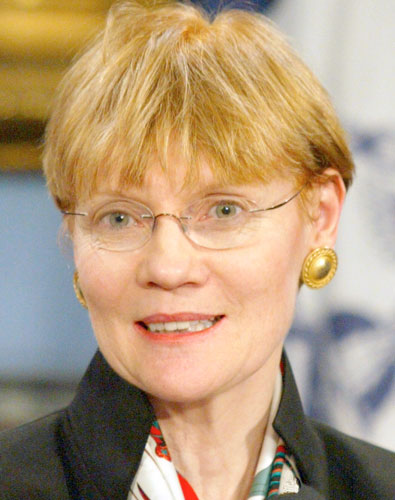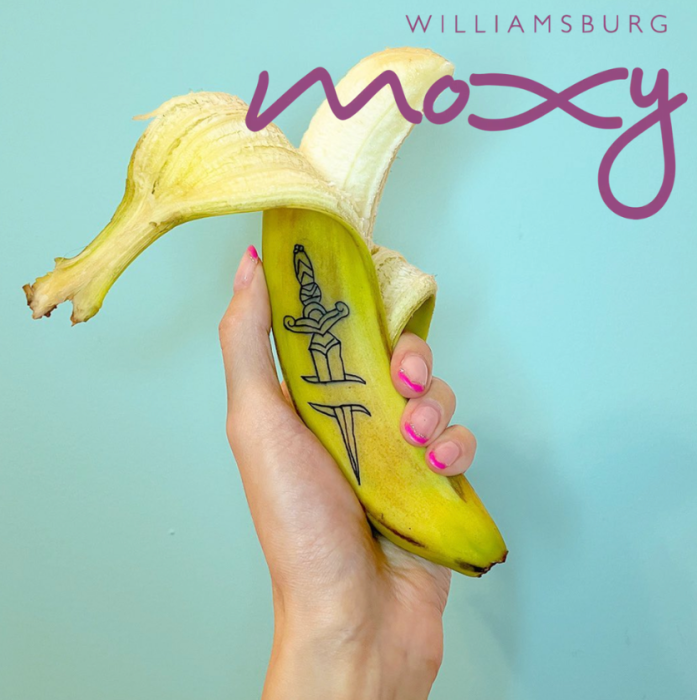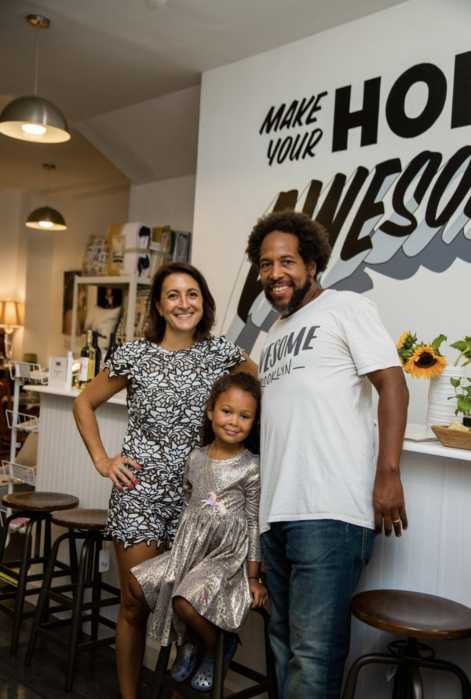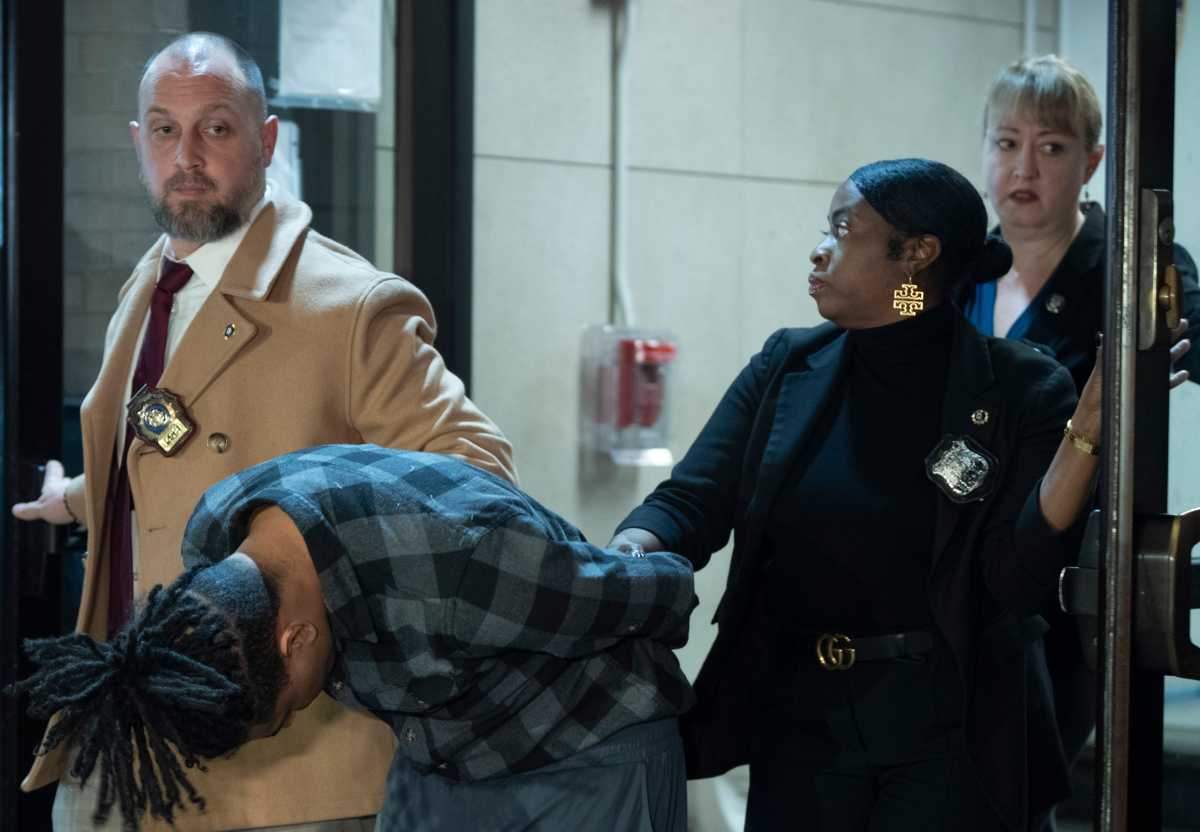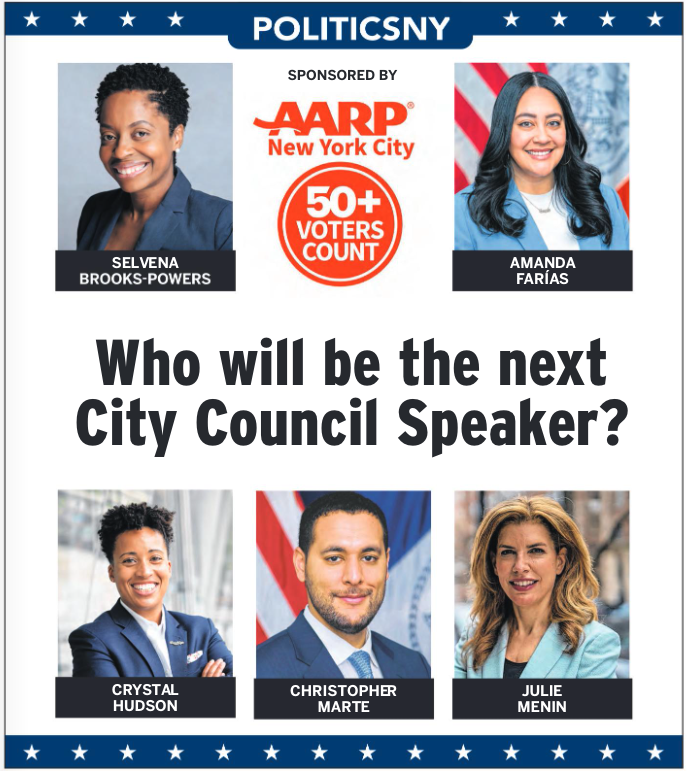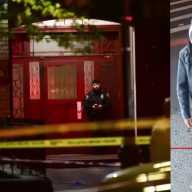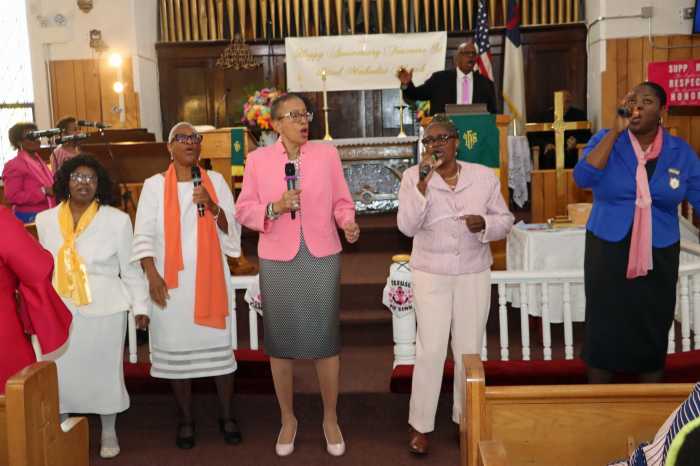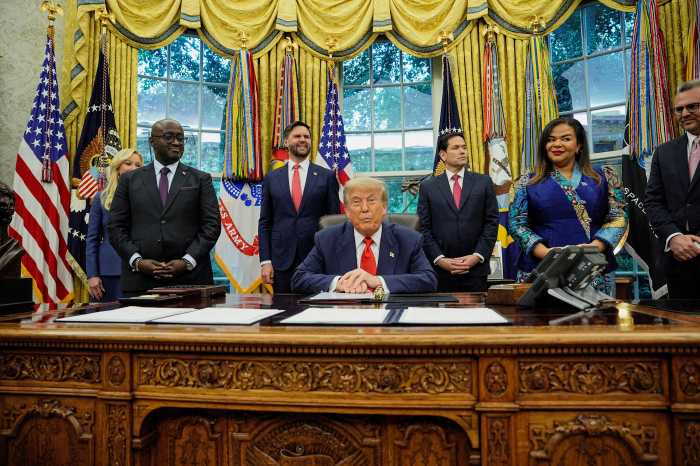Polls are open for early voting, and Brooklynites are heading to cast their ballots for mayor, comptroller, borough president, City Council, and more — but some may be surprised to find five ballot initiatives that would directly impact New York City.
Wait, what are ballot initiatives?
Ballot initiatives are yes-or-no questions, which voters can choose to approve or disapprove while at the voting booth. The measures originate from local elected pols, who pass the initiatives in their respective legislative chambers to get the questions on the ballot.
Among the more notable past ballot initiatives is the 2019 decision to institute Ranked Choice Voting for local primary elections, which voters overwhelmingly approved, and took effect earlier this year (since the upcoming Nov. 2 contest is a general election, Ranked Choice Voting will not be used).
Other past ballot initiatives have included changes to the Uniform Land Use Review Procedure, and the Civilian Complaint Review Board, tasked with handling complaints of misconduct within the city’s Police Department.
What’s at stake this time around?
This year’s ballot features five statewide propositions, touching on issues like voting rights and reorganizing the court system.
There are staunch opponents of the measures, such as the borough’s Conservative Party, heads of which are encouraging poll-goers to vote down all five.
“This year’s ballot propositions will weaken the independent redistricting process and put it back in the hands of partisan politicians so that they can draw legislative district lines to serve their interests and not that of the electorate,” said Kings County Conservative Party Chairwoman Frances Vella-Marrone. “In addition, they will allow for same-day voter registration, universal vote by mail and ballot harvesting which will erode our electoral process and make it ripe for fraud.”
In standard fashion, the battle lines for this year’s ballot proposals are drawn along partisan lines, with the Brooklyn Democratic Party recommending voters approve all five initiatives.
“The Brooklyn Democratic Party fully favors the ballot initiatives, which help safeguard balance in our government in the redistricting process, preserve our right to clean air and water, make it easier for qualified voters to make their voices heard, and reduce the caseload burden of the State Supreme Court,” said a spokesperson for the Brooklyn Dems. “Vote yes, and vote early.”
Here’s a breakdown of all five initiatives voters will see on their ballots:
Proposition 1: Redistricting
Every 10 years following the release of the US Census, local and state governments conduct a redistricting process to better represent constituents after population changes. While this year the state will lose one representative in US Congress, big changes are expected in this year’s redrawing of historically red-leaning districts as Democrats control both chambers of state government.
While New Yorkers voted for an independent commission to take over the redistricting process in a referendum in 2014, the Legislature can elect to override them and draw their own maps. If the case, Democratic control means those in power, like Democratic Gov. Kathy Hochul, could draw lines without yielding to Republican demands.
The New York Times reported that state officials are looking to top New York’s congressional members, such as Hakeem Jeffries — New York’s highest-ranked member in Congress, representing southeastern Brooklyn and parts of Queens — to give Democrats a better hand when running for a House seat. One of their options is to add more left-leaning nabes to New York’s 11th District, which is currently repped by the city’s lone Republican Congresswoman, Nicole Malliotakis, and spans a section of southwest Brooklyn and Staten Island.
Conservatives also fear Prop 1 will further limit their party’s say in the redistricting process, while county Democrats will preserve balance in the process,
But that’s not all. The first proposition has a number of reforms packaged into one — only allowing for a blanket yes or no vote to approve a number of provisions to the state redistricting process. Here’s what else voting yes to Prop 1 would do:
- The number of state senators will be capped at 63.
- The redistricting commission will only require a simple majority vote when approving co-directors, and will no longer require the executive directors to be member of different political parties. If the redistricting commission can not come up with two appointments, it will no longer be bumped to the state Legislature to decide.
- Assembly and state senate districts must be based on the total population of the state to include non-citizens and Native Americans if they were not counted in the federal Census.
- People who are incarcerated must be counted in their last place of residence and not where they are incarcerated.
- Approving the plan will only require seven votes in favor of the 10 commissioners, and will no longer require that one commissioner from each legislative group, for example, Democrats in the State Senate or Republicans in the Assembly, to pass the plan.
- If the redistricting commission cannot garner seven approval votes, the commission must send the plans to the state Legislature which can adopt the plan with a 60 percent majority, instead of a two-thirds majority if the Legislature has a supermajority. If the commission fails to vote on any plan, all plans must be sent to the Legislature and each House can introduce and adopt their plan with or without amendments.
- The vote threshold will no longer be dependent on the party affiliation of Assembly Speaker and the Senate president.
- The redistricting commission will be required to submit their redistricting plan and implement legislation two months earlier than currently stipulated.
- The “block on border” rule will be repealed, which required the placing of blocks on the borders of districts in certain districts.
Proposition 2: Environment
The proposed amendment would establish the right to clean air, clean water and a healthful environment to each person. While it is general, proponents of the amendment say it will require the government to consider this measure in decision-making and create a way to combat environmental justice.
The City reported that similar state amendments have been in place in Pennsylvania and Montana since the 1970s and a Pennsylvania-based environmental group used the amendment to block proposed provisions of a law that would have expanded fracking in the state.
Opponents of the amendment argue its vagueness will open a stream of unnecessary lawsuits, the City further reported.
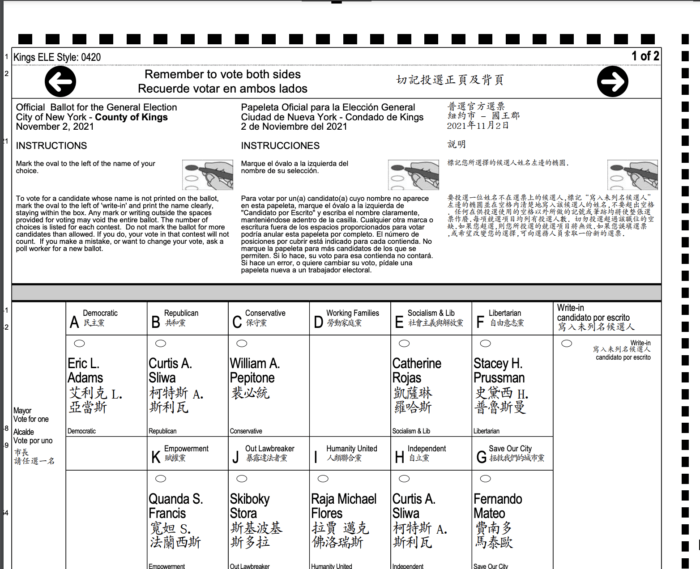
Proposition 3: Voter registration
The proposed amendment would eliminate requirements to register for voting ten days prior to election day.
Removing the requirement would open up pathways for the state Legislature to pass same-day voter registration — something that has been long hailed as a way to make voting more accessible to everyone.
Same-day voter registration is a measure that conservatives around thee country believe will harbor voter fraud, and the Kings County Republican Party named Prop 3 as one of the proposals most imperative to vote against.
Prop 4: Absentee voting
This proposition will delete the requirement that voters can only use an absentee ballot if there is a reason they can’t be at the polls.
This would create no-excuse absentee ballots — continuing on its widespread use during the pandemic as former Gov. Andrew Cuomo’s emergency order allowed anyone who was at risk of contracting coronavirus to be eligible to vote absentee.
Proposition 5: Civil Court
This proposition will raise the New York City Civil Court’s jurisdiction to hear and decide cases for up-to $50,000 — rather than the current limit of $25,000.
This bill was introduced and approved in the state Legislature already, for which its sponsor argued the legislation would help take a load off of the State Supreme Court, which now handles all claims over $25,000.
If the proposition is approved it would be the first time the jurisdiction in New York Civil Court has been amended since 1983, though a nearly identical ballot proposal to lift the jurisdiction to $50,000 in 1995 was shot down by voters.
Sidney Cherubin, a Brooklyn Law School professor and director of legal services at the Brooklyn Volunteer Lawyers Project said that while he supports the proposition, it will make an already busy court busier and therefore lawmakers will need to allocate more spending to the court and hire more employees.
Getting to the polls
New York City’s general election, where voters will make their choices for City Council, mayor, public advocate, and more, is Nov. 2. Early voting began Oct. 23, and will take place through Sunday. Oct. 31. Polls will be open on Election Day from 6 am to 9 pm.


